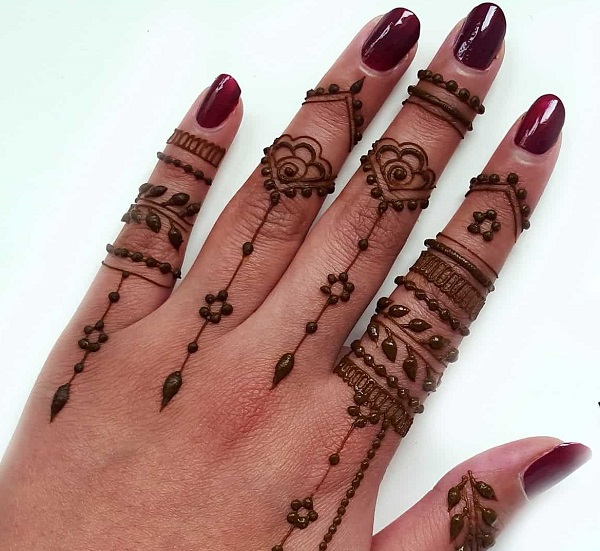FWP:
SETS == GROTESQUERIE
HENNA:
{18,4}
Abstraction is here joined to bloody physicality. The removal from the heart of the thought of the beloved's hennaed finger became-- notice the past-tense verb-- the tearing out of a fingernail from the flesh. The verb ho gayaa makes it sound not like an abstract idea, but like something that was actually attempted; and then the echo-like presence of ho jaanaa emphasizes the change of state. Whether the attempt succeeded or failed, it was a mental experience of physical agony. Ripping out a victim's fingernails is a classic form of torture, and surely we are meant to have that knowledge too in the back of our minds.
The dimensions of affinity between the beloved's perfect, henna-reddened finger and the lover's mutilated, blood-reddened finger are unusually clear and striking. How physical, and how metaphorical, are they? (For more on henna, see {18,4}.) The verse equates the removal of a thought from the mind, with the removal of a fingernail from the flesh. The removal of a fingernail can be accomplished, at the cost of extreme pain. Does this mean that the removal of that particular thought can also be accomplished? And if the fingernail will eventually grow back; perhaps we are to believe that the thought will grow back as well.
For another frightful tearing out of something
integral and essential, compare {68,9x}.

Nazm:
He says, has the fingernail ever been separated from the flesh? That is, those two can never be parted. The thought of the hennaed fingers cannot leave the heart. (43)
== Nazm page 43